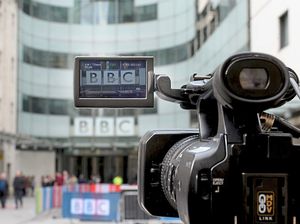'Neighbour from hell!' Newspaper editors call on BBC to abandon plans to expand further into local marketplaces
Senior local editorial directors have joined forces in an unprecedented call for the “neighbour from hell” BBC to abandon its plans to expand aggressively into local news marketplaces already well served by commercial providers.

In a message running across local titles today, editors warn that the BBC is as an “equally potent threat” to the sustainability of local journalism as the tech platforms, fixated on stealing local media’s readers, businesses, and the jobs of their journalists.
“If the BBC was a family and lived in the house next door to you it would be the neighbour from hell,” the editors said, adding that the attack on local news media would be a “shameful legacy” for BBC Director-General Tim Davie.
The editors added: “That’s the verdict of some of the most experienced local newspaper editors in the country who now regard the BBC as little more than a state-funded juggernaut on course to suffocate independent journalism in every city, town and village in the UK.
“The BBC seems to be on a mission to be the only show in town - having taken an axe to its much-loved local radio stations so it can start writing news stories online which you can already get from local newspapers which are currently battling with tech platforms like Google, Meta and Apple.”
The message is signed by Ian Carter, Iliffe Media editorial director; Toby Granville, Newsquest editorial development director; Gary Shipton, National World editorial director; Jeremy Spooner, News Media Association Independent Publishers Forum chair; Paul Rowland, Reach Regionals editorial director; and Martin Wright, Midland News Association editor in chief.
It is thought to be the first time editorial chiefs from local publishers have co-signed a joint message in this way.
The editors said: “Unlike Google, Meta and co, the BBC’s funding is guaranteed by the licence fee, meaning the British public is underwriting the biggest threat local journalism has ever faced. It is splashing your cash on local news websites and making it increasingly difficult for proud, independent news sites to survive in the long term,”
“How is it doing this? Back in October 2022, the BBC laid out plans to strengthen local online news provision in communities across England. The scheme includes the creation of 130 additional posts. More journalism would normally be welcomed, but the BBC’s plans put at risk thousands of existing jobs on titles known to their communities for generations.”
“Editors are convinced that as they juggle the realities of the cost-of-living crisis, the BBC - immune from the same commercial pressures - is fixated on stealing their readers, their businesses, and the jobs of their journalists. It either knows what is doing, and doesn’t care, or is ignorant to the impact it will have.
“What a shameful legacy that would be for Tim Davie, the 17th Director-General of the BBC.
The editors said that if the BBC wanted to fairly compete and support a diverse and trusted local news reporting ecosystem it should focus its efforts on providing a snapshot of life in its 12 English regions, Wales, Scotland and Northern Ireland, and abandon its roll out of 34 local websites.
The editors added: “It could do so much more to link to local publishers, helping them to thrive, rather than trying to close them down. Even such a simple act, repeatedly asked for over the years, seems beyond the BBC.
“The Government is taking welcome steps to tackle the market abuses by Meta and Google through the Digital Markets Bill, which will create a level playing field between publishers and tech platforms. Yet the BBC will remain as an equally potent threat, all but unchecked by Ofcom.
“Earlier this year we called on the BBC to be a better neighbour.
“It is time the BBC showed that it is not the biggest threat to local community independent journalism, but a global broadcaster focussed on delivering the very best television and radio in line with its charter.”
